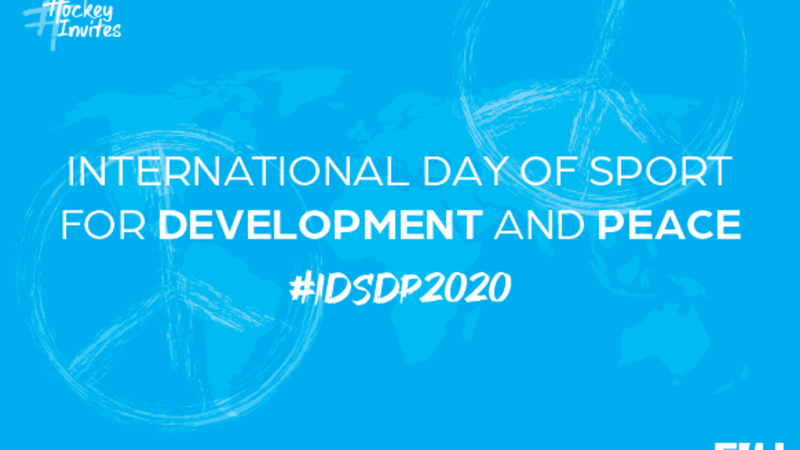
FIH has spent the past five days celebrating hockey’s place in promoting peace and development via a range of projects and initiatives. The stories, from across the five hockey-playing continents, are part of the recognition and celebration of the United Nations International Day of Sport for Development and Peace, which takes place today (Monday 6 April).
With the health of the global community under threat from the virus Covid-19, never has the message of unity and support been more pertinent. The stories we have highlighted here are just five examples from hundreds of activities that are being run by the hockey family with the end goal of making communities healthier, happier and better places to be.
Much of the development work across the international community is driven by the FIH Hockey Academy. Working in collaboration with national associations, continental federations, local organisers and a number of other stakeholders, the FIH Hockey Academy seeks to develop hockey and to provide development via hockey. To explain that important distinction and to talk about the work of the academy, we spoke to FIH Academy director Mike Joyce.
A message from the FIH Hockey Academy
"At the International Hockey Federation we believe in the power of sport to change the world. The greatest thing about sport development and sport for development is essentially that it is about helping other people.
Everything we do in development we do in partnership with our national associations and continental federations. It is focused on hockey development, including education, participation and infrastructure or hockey for development – things like gender equality, social inclusion, youth and education.
When we are designing our education and development programmes we are always mindful of two principles. Firstly, the needs and dreams of our stakeholders and secondly to make sure the projects are sustainable.
In terms of sustainability, we look for strong stakeholder partnerships making sure everyone has clear roles and responsibilities; multiple sources of funding; capacity of infrastructure at the market we are entering; smart goals; good marking and communication; and importantly, easily measurable targets that we can report back at the end of the project.
A model example is the Tap West Africa project. UK Sport, England Hockey, the African Hockey Federation, the Ghana Hockey Association all collaborated in this project. There were clear outcomes for participation, performance and education. This took place not just in Ghana but in West Africa as a whole.
If you visit the FIH Academy Facebook page, you can see the documentary about the project - it’s called the Sound of Hope and is a fantastic example of what the hockey community can do when it works together.
While the current global pandemic is restricting the delivery of many stakeholder development hockey activities it is clear the hockey family will not sit still. If it is home skills challenges or webinars you are looking for, you will have no problem. To support this online hockey whirl, the FIH, in partnership with the continental federations, just launched a series of online workshops and courses through the FIH Academy.
The first, an online FIH Academy Level One Coaching Course, starts today (Monday 6 April) with candidates across the globe. To find out more, head to the FIH.academy
Today, it is the International Day of Sport Development and Peace. We, in the global hockey community, are massively proud to support this United Nation’s initiative."
#IDSDP2020






















